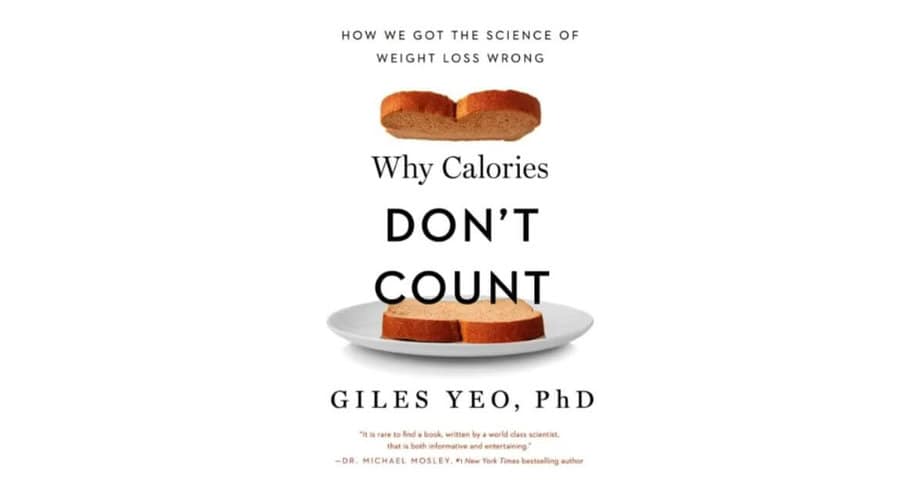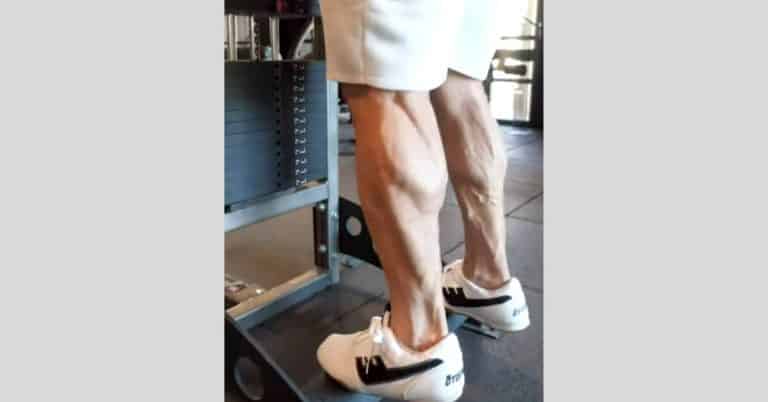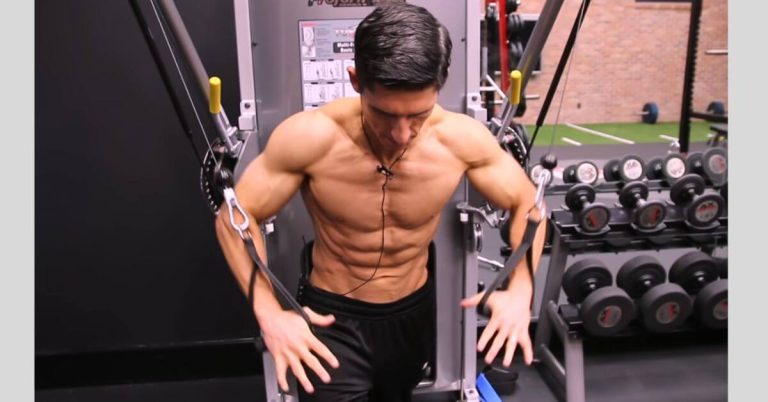If Food Goes Right Through You Do the Calories Count? Uncovering the Truth Behind Digestion
Last Updated on October 24, 2023 by Justin Harris
If Food Goes Right Through You Do the Calories Count: If food goes right through you and you experience diarrhea, the calories may not be fully absorbed by your body. When diarrhea occurs, nutrients and calories may not have sufficient time to be digested and absorbed in the small intestine, leading to potential nutrient and calorie loss.
However, it depends on the duration and severity of the diarrhea. Over a short period, there may not be a significant reduction in nutrient absorption, but prolonged or frequent occurrences of diarrhea can potentially impact calorie intake and nutrient absorption.

It is important to note that individual circumstances may vary, and seeking medical advice is recommended for personalized guidance.
Understanding Digestion And Calorie Absorption
If food moves too quickly through the digestive system without being properly digested and absorbed, it can result in reduced calorie and nutrient absorption. This is commonly seen in cases of diarrhea, where food passes through the intestines at an accelerated pace.
While the duration and severity of diarrhea can impact the extent of nutrient loss, it is generally acknowledged that extended periods of diarrhea can lead to decreased calorie absorption and nutrient deficiencies.
The small intestine plays a crucial role in nutrient absorption. As food passes through the small intestine, its nutrients, including calories, are broken down and absorbed into the bloodstream.
However, when food moves too quickly through this process, the body has less time to extract and absorb the calories. Consequently, not all the calories consumed may be successfully absorbed, potentially leading to a decrease in overall calorie intake.
In conclusion, when food goes right through the digestive system due to diarrhea or rapid transit, the calories consumed may not be fully absorbed, impacting the overall calorie count. Proper digestion and absorption are essential for maximizing nutrient intake and maintaining a healthy diet.
Impact Of Diarrhea On Calorie Absorption
If you eat food and get diarrhea right after, do all the calories still count? According to various sources, the impact of diarrhea on calorie absorption can vary. If the diarrhea does not last long, there may not be reduced absorption of nutrients (or calories). However, over an extended period, there could be a decrease in absorption due to the rapid movement of food through the digestive system.
Some individuals may also experience dehydration, which can affect nutrient absorption. It is important to note that diarrhea can contribute to malnutrition through a reduction in food intake, decrease in absorption of nutrients, and an increase in the breakdown of nutrient reserves. It is always best to consult a healthcare professional for personalized advice in such situations.
Factors Influencing Calorie Absorption During Diarrhea
During diarrhea, the absorption of calories may be reduced over an extended period of time, leading to a potential decrease in nutrient intake. However, if the diarrhea is short-lived, there may not be a significant impact on calorie absorption.
Duration And Severity Of Diarrhea
When experiencing diarrhea, the duration and severity play a role in calorie absorption. If the diarrhea does not last long, there may not be a significant reduction in nutrient and calorie absorption. However, over an extended period, the time food spends in the small intestine decreases, resulting in reduced absorption of calories.
Types Of Food Consumed
The types of food consumed during diarrhea can impact calorie absorption. Some foods are easier to digest and absorb, while others may pass through the digestive system more quickly. Generally, easily digestible foods such as plain rice, bananas, and toast are recommended during bouts of diarrhea to promote better absorption of calories.
Individual Differences In Digestion And Absorption
Individual differences in digestion and absorption also influence the calorie absorption during diarrhea. Each person has a unique digestive system, and factors such as gut health, enzyme production, and overall health can affect the efficiency of nutrient and calorie absorption during diarrhea.
Read Also: If I Eat 2000 Calories And Burn 500: Unleash the Power of Efficient Calorie Management
Debunking Common Misconceptions
During a brief episode of diarrhea, there may not be a significant reduction in nutrient absorption or calorie intake. However, over a prolonged period, the time for digestion and absorption of nutrients is significantly reduced, leading to potential malnutrition. Diarrhea can contribute to malnutrition due to a decrease in food intake, reduced absorption of nutrients, and increased breakdown of nutrient reserves.
While diarrhea can affect the digestive process and nutrient absorption, some nutrients may still be absorbed despite the condition. However, the rapid movement of food through the small intestine during diarrhea can limit the absorption of certain nutrients, resulting in potential deficiencies.
When food moves quickly through the small intestine without sufficient time for digestion and absorption, not all calories and nutrients may be fully absorbed. This can lead to reduced nutrient intake and potential weight loss. It’s important to ensure proper hydration and consult a healthcare professional if diarrhea persists for an extended period.
Read Also: How to Use an Elliptical Machine for Weight Loss?
Maintaining Nutrient Balance During Diarrhea
When food passes through you quickly due to diarrhea, the absorption of nutrients and calories may be reduced over an extended period. However, if the diarrhea is short-lived, there may not be a significant impact on nutrient balance.
During episodes of diarrhea, it is important to focus on dietary strategies that support nutrient absorption. The following tips can help maintain nutrient balance:
- Stay hydrated: Diarrhea can lead to fluid loss, so it’s crucial to stay properly hydrated. Drinking plenty of water and electrolyte-rich fluids, such as sports drinks or oral rehydration solutions, can help replace lost fluids and maintain electrolyte balance.
- Eat easily digestible foods: Choosing foods that are easy to digest can reduce the strain on your digestive system. Opt for bland foods like bananas, rice, toast, boiled potatoes, and cooked vegetables. These foods are gentle on the stomach and can be easily absorbed.
- Avoid high-fiber foods: High-fiber foods, such as whole grains, legumes, and raw vegetables, can worsen diarrhea. Limit your intake of these foods until your digestive system has recovered.
- Consider probiotics: Probiotics are beneficial bacteria that can help restore the balance of gut flora. Consuming probiotic-rich foods like yogurt or taking a probiotic supplement may aid in digestion and nutrient absorption.
- Know when to seek medical attention: Persistent diarrhea can lead to dehydration and nutrient deficiencies. If your symptoms persist for more than a couple of days or if you experience severe dehydration or other concerning symptoms, it’s important to seek medical attention.
By following these dietary strategies, you can support nutrient absorption and maintain a better nutrient balance even during episodes of diarrhea.
| Importance of hydration and electrolyte balance: | When to seek medical attention for persistent diarrhea: |
|---|---|
| Diarrhea can lead to fluid loss, so staying hydrated is crucial. Drink plenty of water and electrolyte-rich fluids to replace lost fluids and maintain electrolyte balance. | If your symptoms persist for more than a couple of days or if you experience severe dehydration or other concerning symptoms, it’s important to seek medical attention. |
Conclusion
If you experience diarrhea right after eating, it does not necessarily mean that all the calories from the food are wasted. While the duration of diarrhea and the efficiency of nutrient absorption can impact calorie intake, in most cases, the calories still count.
Read Also,
If I Burn 1000 Calories a Day And Eat 1500: Maximize Weight Loss with These Power Tips
However, if you have a food intolerance and experience diarrhea, it may affect your ability to absorb calories and nutrients. Consulting a healthcare professional can provide better insights into your specific situation. Remember, counting calories can be helpful for weight management, but it is also important to focus on overall balanced and healthy eating.
Read Also:
- Does an Elliptical Burn Belly Fat?
- Rowing Machine Benefits Weight Loss
- Are Spaghettios Good for Weight Loss
- Why Do the Weights Feel Heavier Today
- Why Do Weights Feel Heavier Some Days
- Best Sauna Suit for Weight Loss
- Which Burns More Calories Elliptical or Treadmill?
- How to Use an Elliptical Machine for Weight Loss?






